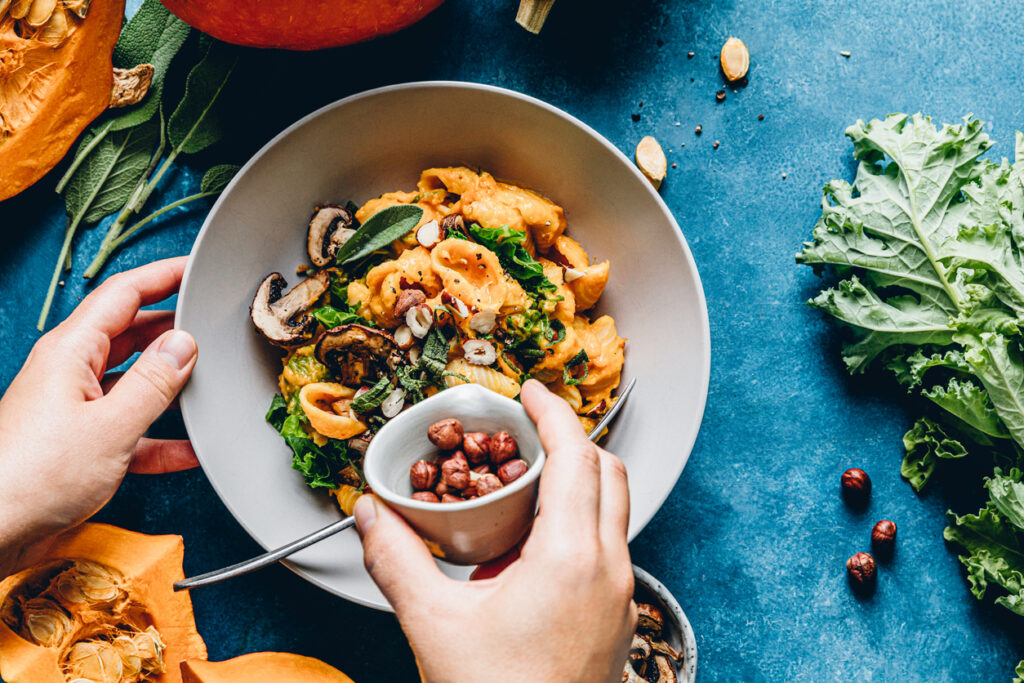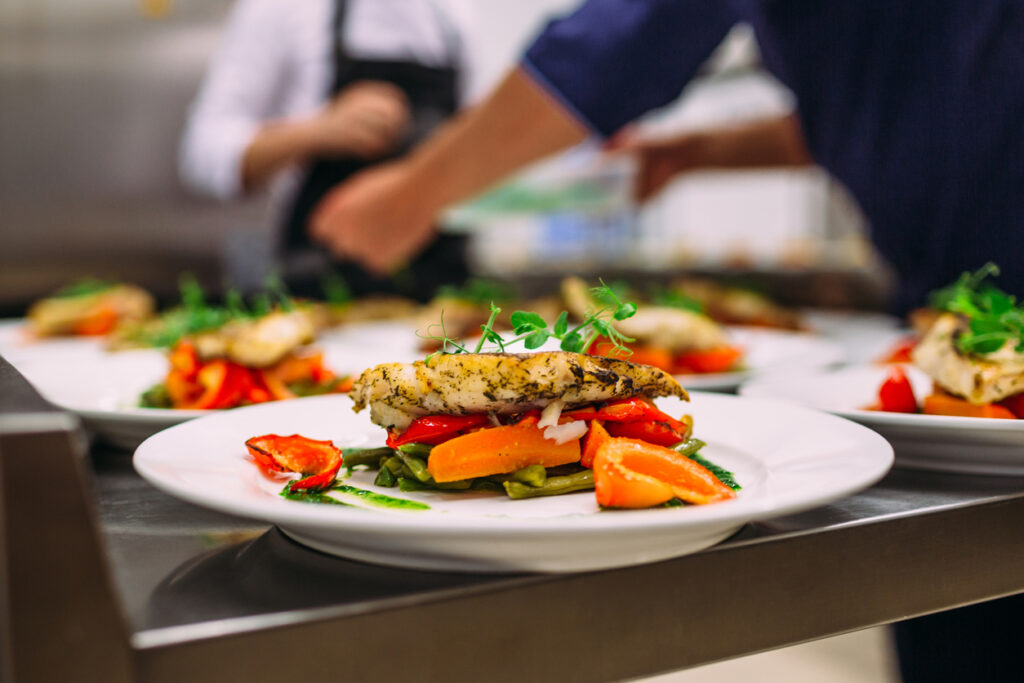The recovery process for substance abuse and addiction requires a quality, healthy diet. Certain substances are associated with an increased risk of obesity, eating disorders, diabetes, electrolyte imbalances, and other adverse conditions. At New Choices Treatment Center, our whole-health empowerment approach is designed to restore your full mental and physical health, including a well-rounded diet to minimize side effects and overcome poor eating habits.
Delight in dietician-designed and chef-prepared dishes. Our meals are prepared from fresh and wholesome ingredients in our gourmet kitchen. Breakfast, lunch, a snack, and dinner are served daily.
We’ve all heard the tales of the importance of breakfast and a healthy diet in creating a clear, focused mind. That’s crucial to success in recovery.

New Choices Treatment Center believes in a whole-person approach to recovery. As a result, we have employed a healthy eating initiative at our River Walk Café. This initiative involves utilizing a whole foods nutrition plan to help anyone regardless of drug or alcohol abuse.
Our whole food nutrition plan offers natural, unprocessed meals free of additives. Eating fresh fruits, vegetables, whole grains, and lean proteins supports better health and reduces the risk of diseases like heart conditions, diabetes, and cancer.
Recent research also indicates that a balanced diet and regular exercise, such as strength-based therapy, can protect the brain and prevent many mental disorders. “Food is like a pharmaceutical compound that affects the brain,” says Fernando Gomez-Pinilla, a UCLA professor of neurosurgery. A whole-food nutrition plan has been shown to reduce the symptoms of mental health disorders such as depression and anxiety.
Emerging research has implicated healthy nutrition in treating substance use disorder. The National Library of Medicine recommends the following practices to maximize recovery:
Substance use disorder affects the body in many ways, including metabolism, organ function, and mental well-being.
Proper nutrition has been shown to help the healing process. It does this by nourishing and healing the body, stabilizing mood, reducing stress, and reducing the cravings for alcohol and drugs. Meanwhile, a proper diet, inspired by world-class food detox centers through our high-quality program, will enhance your energy levels and stimulate the release of endorphins. Of course, this is in conjunction with counseling, therapy, a routine, and community or family guidance and support.
Dr. Alyssa Salz notes, “Proper nutrition and hydration are key to the substance abuse healing process because they help restore physical and mental health and improve the chance of recovery. Macro- and micronutrient deficiencies can lead to symptoms of depression, anxiety, and low energy, all of which can lead someone to start using drugs or alcohol or trigger a relapse.”
Further, there is a higher risk of co-occurring food addiction and binge eating disorder among those living with substance abuse. As a result, a diet that considers the proper amounts of fatty acids, healthy grains, such as brown rice, and high-fiber foods, will help along your road to addiction recovery.
Plus, these ingredients help to reduce sugar cravings and promote healthy weight loss when appropriate. The goal is to get to an ideal body weight, free your mind from the shackles of addiction, and promote long-term mental and physical well-being. And the health eating habits you gain will be crucial well after residential treatment and throughout participation in our intensive outpatient program (IOP) as well.

Chicken Alfredo, green beans, and garlic bread
Veggies and Pretzels served with hummus
Our interior design team crafted the gourmet kitchen to create an exceptional experience for you each day. From the granite countertops and subway tiles to the hydration center and island eating area, you’ll enjoy creating lasting friendships while you snack on vegetables grown in our European-style courtyard right outside the door.

Whether you prefer quiet mornings or social interactions, you’ll have the option to enjoy breakfast wherever you’d like – in your apartment, in the group dining room, or out in the courtyard. While at our residential treatment center, the community comes together for lunch and dinner. You will share these meals with fellow guests in our spacious group dining room. This structured, communal time is an essential part of the healing process, helping to break the patterns of isolation that often accompany addiction. Sharing a table is about more than just food; it’s about connection. It’s a time to get to know one another, share stories, and build a strong peer support network. These are the solid bonds that often become lifetime friendships, anchoring your recovery long after you leave.
Furthermore, these meals are a time to explore the profound benefits of a healthy diet. Proper nutrition is critical for healing both the body and the brain from the effects of substance use. Our culinary team is dedicated to providing delicious, nutrient-dense meal services for recovery, helping you restore your physical health and demonstrating how a healthy diet supports lasting wellness.